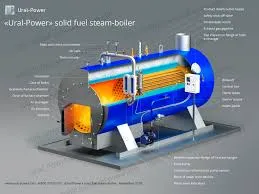
Oct . 02, 2024 13:41 Back to list
steam boiler corrosion
Corrosion in Steam Boilers Causes and Prevention
Steam boilers are crucial components in various industrial applications, providing heat and power through steam generation. However, one of the significant issues that plague these systems is corrosion. Corrosion in steam boilers not only reduces efficiency but also poses safety hazards and increases maintenance costs.
Corrosion is the natural process of deterioration of materials, usually metals, due to chemical reactions with their environment. In the case of steam boilers, corrosion can stem from several factors, primarily involving water chemistry, temperature, and pressure conditions.
Corrosion in Steam Boilers Causes and Prevention
Another significant contributor to corrosion is the formation of scale. Scale deposits can develop on heat transfer surfaces, insulating these areas and causing localized overheating. When this happens, the protective oxide layer on the metal can break down, leading to increased corrosion rates. Thus, maintaining proper water quality and implementing regular cleaning and blowdown procedures can help mitigate this issue.
steam boiler corrosion

Moreover, acidity and the presence of chlorides in feedwater can exacerbate corrosion. Low pH levels can facilitate the leaching of metal ions, while chlorides are particularly aggressive, leading to pitting and stress corrosion cracking. It is essential to regularly monitor and manage the water chemistry to avoid these conditions.
To combat corrosion, several strategies can be implemented. One effective method is the use of corrosion inhibitors, which are chemicals added to feedwater to form a protective film on metal surfaces. Additionally, the implementation of a robust water treatment program can help in controlling dissolved oxygen and maintaining optimal pH levels.
Regular inspections and maintenance are also critical in identifying and addressing corrosion before it becomes a severe issue. This includes monitoring the condition of the boiler tubes and other components, as well as conducting non-destructive testing to determine material integrity.
In conclusion, corrosion in steam boilers is a complex issue that requires diligent management of water chemistry, regular maintenance, and the application of protective measures. By understanding and addressing the causes of corrosion, operators can ensure the longevity and efficiency of steam boiler systems while safeguarding against potential failures.
-
Best Steam Boiler Design PDF Free Design Calculation & Diagram Downloads
NewsJun.10,2025
-
Hot Boiler Water Heater Efficient Heating Solutions for Home & Commercial Use
NewsJun.10,2025
-
Steam Boiler Safety Devices High-Quality Protection Valves
NewsJun.10,2025
-
Ultimate Steam Boiler Checklist for Safety & Efficiency
NewsJun.10,2025
-
Optimal Hot Water Boiler Temperature Setting Guide
NewsJun.10,2025
-
Effective Hot Water Boiler Chemical Treatment Protect & Maintain
NewsJun.09,2025
Related PRODUCTS






















